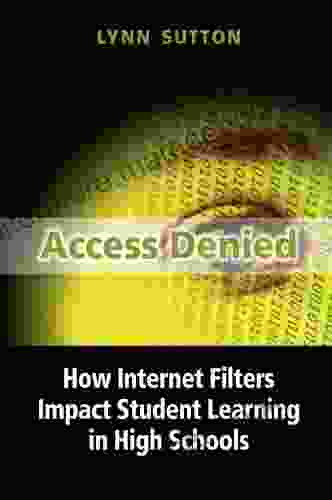Civility, Free Speech, and Academic Freedom in Higher Education: Navigating the Complexities of Discourse on Campus

Higher education institutions have long been considered crucibles of intellectual inquiry, where students and scholars engage in robust debates and exchange ideas freely. However, in recent years, the principles of civility, free speech, and academic freedom have come under increasing strain on college campuses. This article will delve into the intricate relationship between these concepts, exploring their importance for a vibrant academic environment and examining the challenges they face in the modern university.
Civility, defined as politeness, respect, and consideration for others, serves as a fundamental prerequisite for constructive discourse. When individuals interact with civility, they demonstrate a willingness to listen to and engage with opposing viewpoints, even those that challenge their own beliefs. By fostering an atmosphere of respect, civility allows for diverse perspectives to be heard and considered, enriching the collective understanding of complex issues.
In the academic setting, civility is essential for creating an inclusive learning environment where students feel comfortable expressing their ideas without fear of judgment or ridicule. It enables respectful questioning, critical engagement, and the open exchange of knowledge. When students are treated with civility, they are more likely to engage actively in discussions, share their insights, and challenge conventional wisdom.
5 out of 5
| Language | : | English |
| File size | : | 2667 KB |
| Text-to-Speech | : | Enabled |
| Screen Reader | : | Supported |
| Enhanced typesetting | : | Enabled |
| Word Wise | : | Enabled |
| Print length | : | 206 pages |
Free speech, protected by the First Amendment of the U.S. Constitution, guarantees the right of individuals to express their ideas and opinions without fear of censorship or reprisal. In higher education, free speech is vital for the pursuit of knowledge and the advancement of understanding. It allows for the dissemination of diverse perspectives, the examination of controversial ideas, and the fostering of critical thinking.
Free speech empowers students and scholars to engage in robust debates, challenge prevailing norms, and push the boundaries of intellectual discourse. It enables them to question authority, explore new concepts, and challenge the status quo. By protecting free speech, universities create an environment where intellectual curiosity can flourish and where new ideas can be born.
Academic freedom, rooted in the principles of intellectual autonomy and freedom of thought, is essential for the unfettered pursuit of knowledge. It guarantees the right of scholars to engage in research, teaching, and publication without fear of reprisal or censorship. Academic freedom ensures that scholars can conduct their work without interference from external pressures or political ideologies.
In higher education, academic freedom is essential for the production and dissemination of new knowledge. It allows scholars to explore controversial topics, challenge established theories, and pursue research that may be unpopular or challenge prevailing beliefs. By protecting academic freedom, universities foster an environment where innovative ideas can be developed, dissenting voices can be heard, and the boundaries of human understanding can be expanded.
While civility, free speech, and academic freedom are distinct concepts, they are inextricably linked and mutually reinforcing. Civility creates a respectful and inclusive environment that fosters the open exchange of ideas. Free speech ensures that diverse perspectives can be heard and considered without fear of censorship. Academic freedom guarantees the right of scholars to pursue their work without interference, contributing to the advancement of knowledge and the expansion of human understanding.
Striking the right balance between these three principles can be challenging, particularly in the face of increasingly polarized viewpoints and heightened sensitivities on campus. However, it is essential for higher education institutions to navigate these complexities and uphold the principles of civility, free speech, and academic freedom in order to create a vibrant and intellectually stimulating academic environment.
In recent years, there have been growing concerns about the erosion of civility, free speech, and academic freedom on college campuses. A number of factors have contributed to these challenges, including:
- Polarization and Echo Chambers: The rise of social media and the proliferation of online filter bubbles have led to increased polarization of viewpoints and the creation of echo chambers, where individuals are only exposed to information that confirms their existing beliefs. This can make it difficult for individuals to engage in respectful dialogue with those who hold different opinions.
- Cancel Culture: The phenomenon of "cancel culture" has gained traction on social media, where individuals who express unpopular or controversial opinions can face swift and severe backlash, including demands for their removal from their positions or even threats of violence. This has created a climate of fear and self-censorship, particularly among scholars who may be concerned about expressing dissenting views.
- Political Correctness: The desire to avoid offending others has led to a heightened sensitivity on campus, with some students and faculty members expressing concerns about the use of certain language or the expression of certain opinions. This can stifle open dialogue and make it difficult to discuss complex and controversial issues.
- Administrative Overreach: In some cases, university administrators have taken steps to limit free speech or academic freedom on campus, citing concerns about maintaining a safe and inclusive environment. While it is important to protect students from harassment and discrimination, it is essential that administrators do not overstep their bounds and stifle legitimate academic inquiry.
Despite the challenges, it is essential for higher education institutions to preserve the principles of civility, free speech, and academic freedom on campus. By taking the following steps, universities can create an environment where diverse perspectives are respected, open dialogue is encouraged, and scholarly inquiry can flourish:
- Promote Dialogue and Respect: Universities should foster a culture of open dialogue and respect, where students and scholars feel comfortable sharing their ideas and engaging with opposing viewpoints. This can be achieved through initiatives such as campus-wide forums, speaker series, and workshops on respectful communication.
- Protect Free Speech: Universities must vigorously protect the right to free speech, even when the speech is unpopular or offensive. This means challenging attempts to censor or silence dissenting voices, both on and off campus.
- Uphold Academic Freedom: Universities must uphold the principles of academic freedom and protect scholars from interference in their research, teaching, and publication. This includes ensuring that faculty members have the right to pursue their work without fear of reprisal or censorship.
- Balance Civility with Free Speech: While it is important to maintain a civil environment on campus, universities must be careful not to stifle free speech in the name of civility. The challenge is to find a balance that allows for open dialogue and the expression of diverse perspectives, while also ensuring that individuals are treated with respect.
- Educate Students: Universities should educate students about the importance of civility, free speech, and academic freedom. This can be achieved through coursework, workshops, and guest lectures. By fostering an understanding of these principles, universities can empower students to engage in respectful dialogue, challenge conventional wisdom, and contribute to the advancement of knowledge.
Civility, free speech, and academic freedom are the cornerstones of a vibrant and intellectually stimulating higher education environment. They create a space where diverse perspectives are respected, open dialogue is encouraged, and scholarly inquiry can flourish. By navigating the complexities of these principles, universities can foster an environment where students and scholars can engage in meaningful discourse, challenge conventional wisdom, and contribute to the advancement of knowledge. It is essential that universities continue to uphold these principles, ensuring that higher education remains a beacon of intellectual inquiry and a catalyst for positive change in society.
5 out of 5
| Language | : | English |
| File size | : | 2667 KB |
| Text-to-Speech | : | Enabled |
| Screen Reader | : | Supported |
| Enhanced typesetting | : | Enabled |
| Word Wise | : | Enabled |
| Print length | : | 206 pages |
Do you want to contribute by writing guest posts on this blog?
Please contact us and send us a resume of previous articles that you have written.
 Top Book
Top Book Novel
Novel Fiction
Fiction Nonfiction
Nonfiction Literature
Literature Paperback
Paperback Hardcover
Hardcover E-book
E-book Audiobook
Audiobook Bestseller
Bestseller Classic
Classic Mystery
Mystery Thriller
Thriller Romance
Romance Fantasy
Fantasy Science Fiction
Science Fiction Biography
Biography Memoir
Memoir Autobiography
Autobiography Poetry
Poetry Drama
Drama Historical Fiction
Historical Fiction Self-help
Self-help Young Adult
Young Adult Childrens Books
Childrens Books Graphic Novel
Graphic Novel Anthology
Anthology Series
Series Encyclopedia
Encyclopedia Reference
Reference Guidebook
Guidebook Textbook
Textbook Workbook
Workbook Journal
Journal Diary
Diary Manuscript
Manuscript Folio
Folio Pulp Fiction
Pulp Fiction Short Stories
Short Stories Fairy Tales
Fairy Tales Fables
Fables Mythology
Mythology Philosophy
Philosophy Religion
Religion Spirituality
Spirituality Essays
Essays Critique
Critique Commentary
Commentary Glossary
Glossary Bibliography
Bibliography Index
Index Table of Contents
Table of Contents Preface
Preface Introduction
Introduction Foreword
Foreword Afterword
Afterword Appendices
Appendices Annotations
Annotations Footnotes
Footnotes Epilogue
Epilogue Prologue
Prologue One Of One Publisher
One Of One Publisher Millard Deutsch
Millard Deutsch Michael Robbins
Michael Robbins Morgan Jerkins
Morgan Jerkins David Weber
David Weber Berthold Hoeckner
Berthold Hoeckner Rory Carruthers
Rory Carruthers Kakali Bhattacharya
Kakali Bhattacharya J R Roberts
J R Roberts P A Choi
P A Choi Calle J Brookes
Calle J Brookes Susan Sherman
Susan Sherman Malcolm Birch
Malcolm Birch Lydia M Hawke
Lydia M Hawke Lynn Lott
Lynn Lott Rudel Simon
Rudel Simon Amber Adams
Amber Adams Mike Sibley
Mike Sibley Wladston Ferreira Filho
Wladston Ferreira Filho Kristen Sutcliffe
Kristen Sutcliffe
Light bulbAdvertise smarter! Our strategic ad space ensures maximum exposure. Reserve your spot today!

 Thomas HardyImmerse Yourself in the Epic Saga: Sword Song: The Battle for London, A Saxon...
Thomas HardyImmerse Yourself in the Epic Saga: Sword Song: The Battle for London, A Saxon... Jorge Luis BorgesFollow ·8.9k
Jorge Luis BorgesFollow ·8.9k Spencer PowellFollow ·10.2k
Spencer PowellFollow ·10.2k Edward BellFollow ·12k
Edward BellFollow ·12k Allen GinsbergFollow ·6.3k
Allen GinsbergFollow ·6.3k Jaden CoxFollow ·17.4k
Jaden CoxFollow ·17.4k Francis TurnerFollow ·11.1k
Francis TurnerFollow ·11.1k Jeff FosterFollow ·12.6k
Jeff FosterFollow ·12.6k Dylan MitchellFollow ·5.3k
Dylan MitchellFollow ·5.3k

 Melvin Blair
Melvin BlairJames Wade's Captivating Tale: Delving into the Second...
In the heart of a realm where the veil...

 Eric Hayes
Eric HayesFabric Paper Thread: 26 Projects to Stitch with Friends
Get ready to embark on a captivating journey...

 Greg Foster
Greg FosterThe Grammy Awards Record of the Year 1958-2024: A...
The Grammy Awards, the most prestigious...

 Alex Foster
Alex FosterSaragarhi: The Forgotten Battle of the British Empire
On September 12,...
5 out of 5
| Language | : | English |
| File size | : | 2667 KB |
| Text-to-Speech | : | Enabled |
| Screen Reader | : | Supported |
| Enhanced typesetting | : | Enabled |
| Word Wise | : | Enabled |
| Print length | : | 206 pages |














